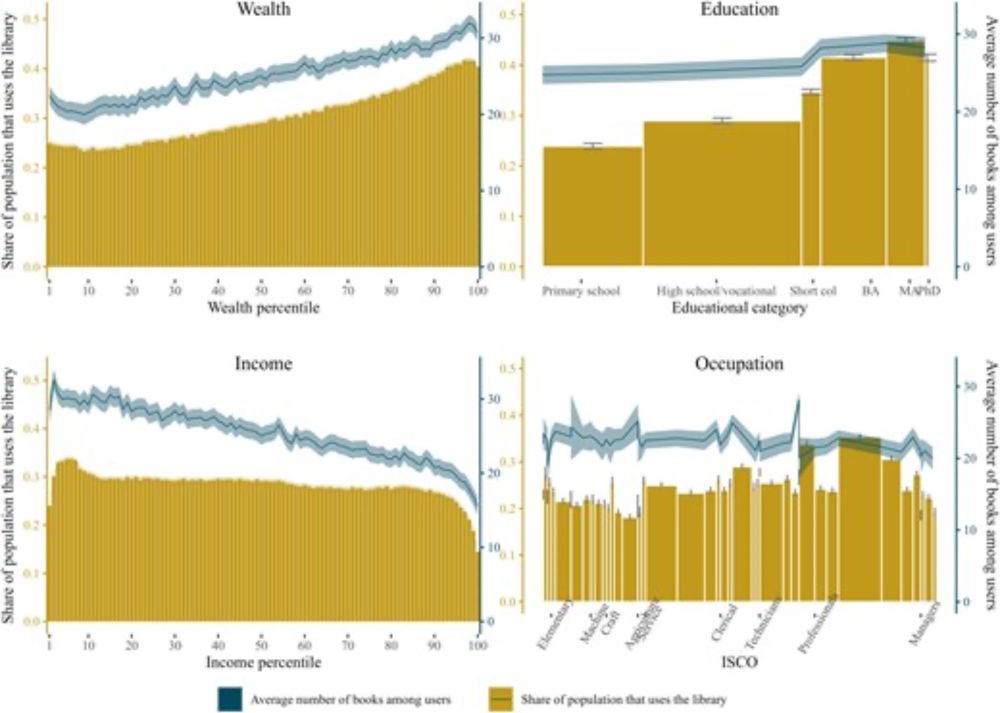Ea Blaabæk
@blaabaek.bsky.social
1K followers
930 following
24 posts
Sociologist interested in educational and cultural stratification, parenting, and the unequal impact of health shocks. Researcher ROCKWOOL Foundation. Blaabaek.dk
Posts
Media
Videos
Starter Packs
Pinned
Ea Blaabæk
@blaabaek.bsky.social
· Mar 15

Nudging Loan of Children's Books – Quasi-Experimental Evidence from a Library Book Giveaway Program
Libraries play a crucial role in providing children with access to reading materials, which is essential for developing reading skills. This paper examines whether a library book giveaway program w...
www.tandfonline.com
Reposted by Ea Blaabæk
Reposted by Ea Blaabæk
Reposted by Ea Blaabæk
Reposted by Ea Blaabæk
Reposted by Ea Blaabæk
Reposted by Ea Blaabæk
Reposted by Ea Blaabæk
Reposted by Ea Blaabæk
Reposted by Ea Blaabæk
Reposted by Ea Blaabæk
Reposted by Ea Blaabæk
Reposted by Ea Blaabæk























